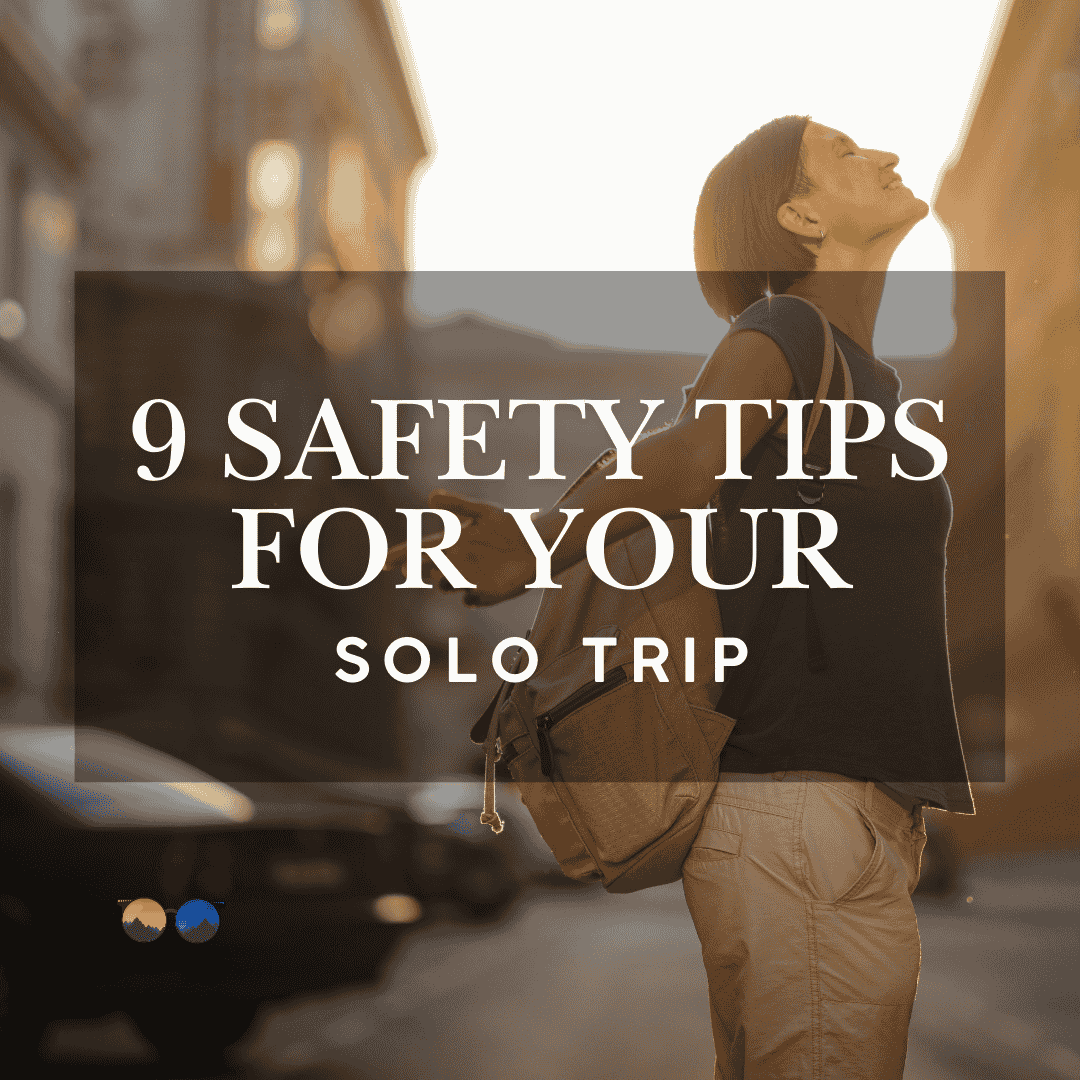One of the critical factors constituting a wonderful solo trip is safety. Be keen at all times and never be afraid to use your instincts to make the most out of your trip. With the help of these recommendations, your trips can become more safe, and therefore, pleasant.
1. Using eSIM or Local Sims- Always Stay Connected
- There should always be a way to talk to someone when one is on the trip alone most of the time.
- When it comes to using navigation, contacts, or other services, it is better to use eSIM or local SIM cards immediately after arrival.
- eSIM especially saves you the trouble of having to spend time in a queue at the airport activating your phone plans.
2. Never Leave Your Schedule with People You Cannot Trust
- It is always important to let someone you know close to you know the details of your activities even if there is a change in the act.
- Forward your traveling itinerary and any accommodation you are to use to a reliable person.
- Daily calls will help ensure that someone will know where you are in case there is an emergency.
3. Trust Your Instincts
- Your instincts or first impression is one of the greatest protection assets that you are ever likely to have.
- If the taxi, the neighbor, the conversation makes you uncomfortable, just leave the spot.
- Do not expose yourself to any setting that you feel awkward with, just because everyone else is okay with it.
4. Do not Post too Much on Social Media
- Excessive sharing of this information creates open exposure which gives rise to security threats.
- Do not share the updates of your geolocation or information regarding the place where you are living.
- In case of an unforeseen emergency, delete your account and create a new one again by using different settings to change your privacy.
5. Secure Your Belongings
- Safety of your belongings is one of your highest concerns when traveling.
- It also can be practical to carry money or a wallet in a special belt under clothes or use a secret pocket inside the clothes.
- Do not keep items such as mobile phones, purses, wallets and other valuable things within easy reach, such as back pockets.
6. Use Safe Transportation
- The specific transportation method that can be used can significantly improve your safety.
- Avoid grabbing random taxis but instead, go for recognised ride-sharing Apps such as Uber or Lyft.
- When taking public transportation, try to pick up your stops early in advance and always avoid taking late-night transportation.
7. Avoid Walking in Dark, Desolated Areas at Night
- Avoid dark terrains and some parts of town when geo-location indicates that it is not the best place to walk at night.
- Little lanes, dark streets, and alleys when approached at night should be avoided. Walk or explore well lit and well populated areas.
- Likewise if going to travel at night, use ride-sharing services instead of walking around alone.
8. Carry a Decoy Wallet
- A decoy wallet can work as a perfect prevention tool to reduce the amount of loss after theft.
- Keep an old wallet with a few bucks and some of those cards that have long expired but are impossible to throw away.
- If one is mugged, they hand over the fake wallet in order not to lose all their money and important documents.
9. Exercise Sober Drinking
- It is crucial to maintain control of the amount of drinks you take.
- It may be unwise to get very drunk as you may be more likely to be mugged or attacked when in a state of disorientation.
- Never take a drink from a stranger, and when at a club, bar or party don’t lose track of your drink.
FAQs
How do you stay safe while traveling solo?
Traveling solo can be a rewarding experience, but it requires extra precautions to ensure your safety. One of the first steps is to thoroughly research your destination before you arrive. This includes familiarizing yourself with the local culture, understanding which areas are safe to visit, and identifying potential risks such as scams or unsafe neighborhoods. It's also important to always stay alert to your surroundings. Whether you're exploring a new city or venturing into unfamiliar areas, staying aware of what's happening around you can help you avoid potentially risky situations. Another key safety tip is to share your geo-location with trusted family members or friends.
How to be safe when going out alone?
When going out alone, whether in your hometown or while traveling, it's important to prioritize safety by making smart decisions. First, always stick to busy, well-lit areas, especially during the evening or at night. Crowded spaces provide a sense of safety, as you're less likely to encounter potential dangers in public areas where there are many people around. Avoid venturing into isolated or poorly lit spots, such as back alleys or remote areas, as these are often where people are most vulnerable. Additionally, it's wise to carry self-defense tools, such as a defense spray or a personal alarm, which can come in handy during emergencies.
How can I protect myself while traveling?
Protecting yourself while traveling involves taking several proactive steps to ensure your personal safety and security. One of the most important things to remember is to keep your belongings secure. Another crucial safety measure is being cautious when communicating with foreigners or strangers. While meeting new people is part of the travel experience, always maintain a level of awareness and avoid sharing too much personal information or trusting people too quickly. It's also vital to secure your travel documents, such as your passport, visas, and identification, by storing them in a safe place, whether it's a hotel safe or a hidden travel pouch.
How can a solo female traveler stay safe?
Safety is a top priority for solo female travelers, and there are several strategies that can help ensure a secure and enjoyable journey. One of the best ways to stay safe is to always remain connected with trusted contacts. Regularly check in with family or friends, providing them with updates about your location and travel plans. Many travelers use mobile apps that allow real-time location sharing, which can provide peace of mind for both you and your loved ones. It's also a good idea to carry self-defense items, such as pepper spray or a personal alarm, for added protection. These tools can help you defend yourself in case of an emergency. When exploring new places, avoid venturing into isolated or dangerous areas, especially at night or in unfamiliar neighborhoods.
10 0













